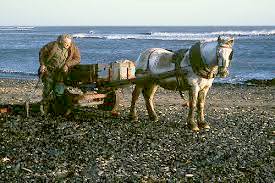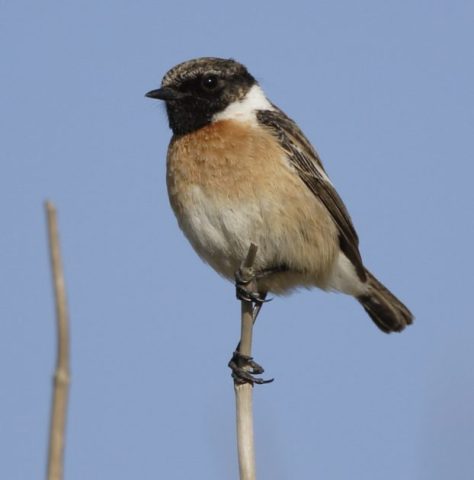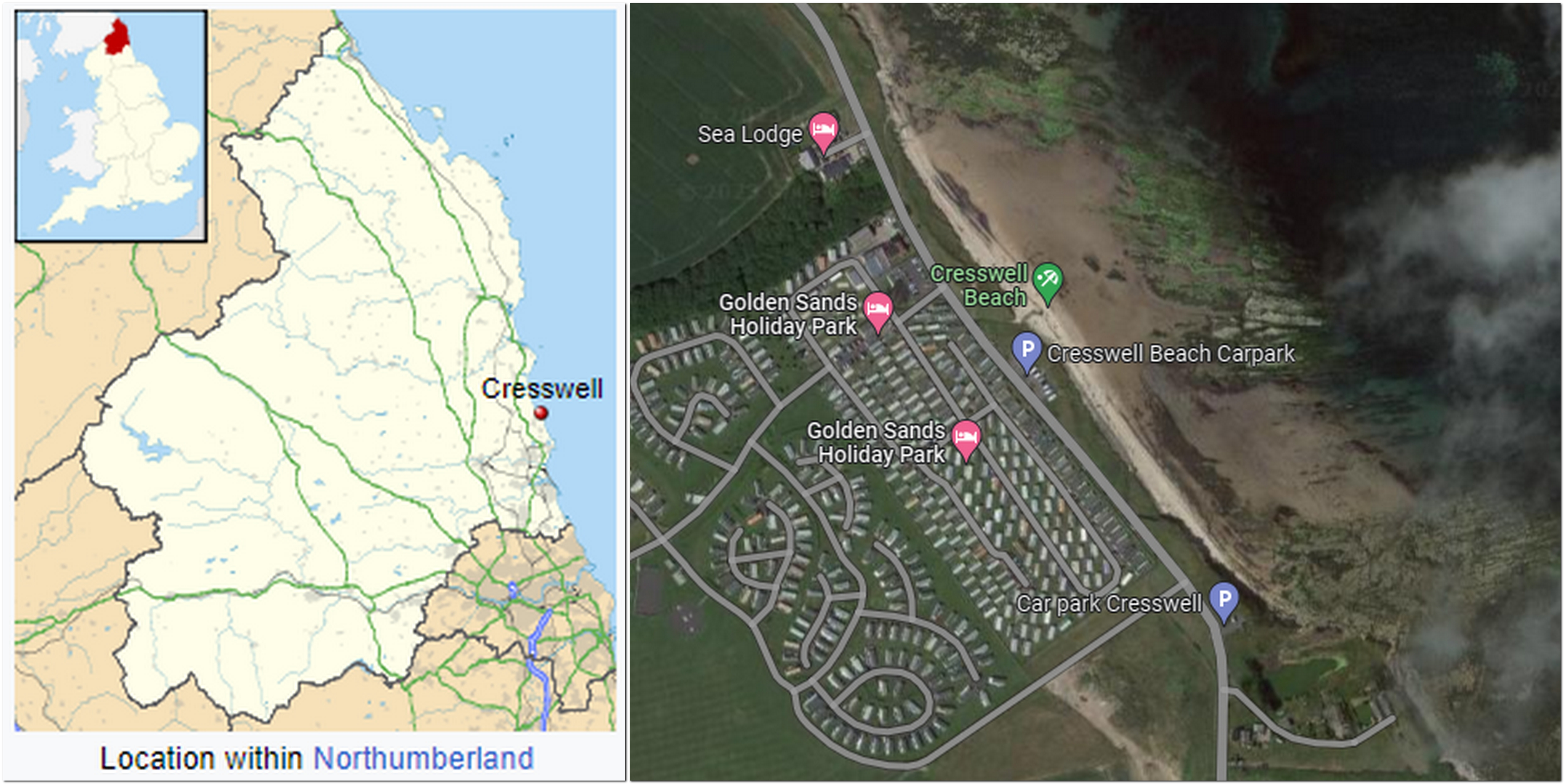The weather has been none too kind in recent weeks here in the northeast of England. And there hasn’t been much incentive for getting out and about. On top of that, I’m suffering from a very painful bout of sciatica that is severely restricting my mobility. At least until the pain medication I was prescribed has kicked in.
A couple of days ago, the day dawned bright and sunny, although none too warm. But, for once, my medication did its job quite quickly, which has not been my general experience. So we decided to head up the coast to one of our favorite beaches at Cresswell, and one of the first we explored after we arrived here in the northeast at the back end of 2020.

Cresswell beach in November 2020.
Just 17 miles north from our home in North Tyneside, the drive to Cresswell Beach took just under half an hour.
The beach lies at the southern end of the much larger Druridge Bay, with rocky outcrops at the northern and southern ends, just under a mile apart. Above the tide line there is a stretch of soft sand, and behind the beach a low-lying cliff, perhaps 10m high, with interesting limestone and coal strata exposed.
On the occasions we have visited, there have been just a few people taking a stroll, walking the dog. But I guess in high summer it can get quite busy on a sunny, warm day, as there is a holiday park (with static caravans) just across the road from the beach.
Here’s another view, filmed from the rocks at the southern end (you can see the nearby Lynemouth power station just south of the beach, and in the far distance the five turbine wind farm off Seaton Sluice beach) and panning round to view Druridge Bay to the north.
Behind the rock platform at the southern end, it appears that the cliff was once excavated (behind Steph in the image below) and perhaps accessible at high tide as a small quay.


While there is a lovely stretch of clear, yellow sand along the beach, at both ends of the beach there are patches of what appear to be—at first glance—black sand. On closer inspection, it’s clear that the black grains are not sand but COAL!


This coal, derived from erosion of the coals seems on the beach and out to sea, is actually collected. There are larger pieces the size of small gravel.
In fact, while we were there on an earlier visit, one man had driven on to the north end of the beach on his quad bike, scooping up bucketfuls of the coal.

At the southern end, near the ‘quay’ I asked one ‘coalman’ what he used the coal for. He told me that he heated his shed and greenhouse since it was a free and plentiful source.

Sea coaling at Lynemouth, south of Cresswell.
It seems there is quite a long tradition of collecting sea coal on the Northumberland coast.
Coal is abundant along the coast. Just a mile or two north from Cresswell, the government eventually rejected the development of a large open cast mine behind Druridge Bay, where coal had been mined in the past. In fact several important wildlife reserves have been opened on former open cast sites.
And while doing some background reading for this blog, I came across this other blog.
Just click on the image above to open an interesting post about a feature on Cresswell beach, just north of where we visited. There’s a submerged forest and tree stumps are exposed at low tide.

Now that’s a good enough reason to return to Cresswell before too long.
And while our visit to Cresswell was not primarily for bird-watching, we were very lucky in some of our sightings. Skimming along the cliffs and beach, sand martins were very active, and nesting. Along with five fulmars sitting on a ledge and squabbling. A lone curlew hugged the crest of the waves as it flew down the beach, and out to sea we saw a lone eider duck. Pied wagtails were flitting around the beach.
But the greatest surprise, while we were enjoying a picnic lunch overlooking the beach, was a lone male stonechat that alighted on a bush on the cliff edge just in front of us and in full sunlight. What a magnificent little bird it is.

All bird photos used courtesy of Barry Boswell.







